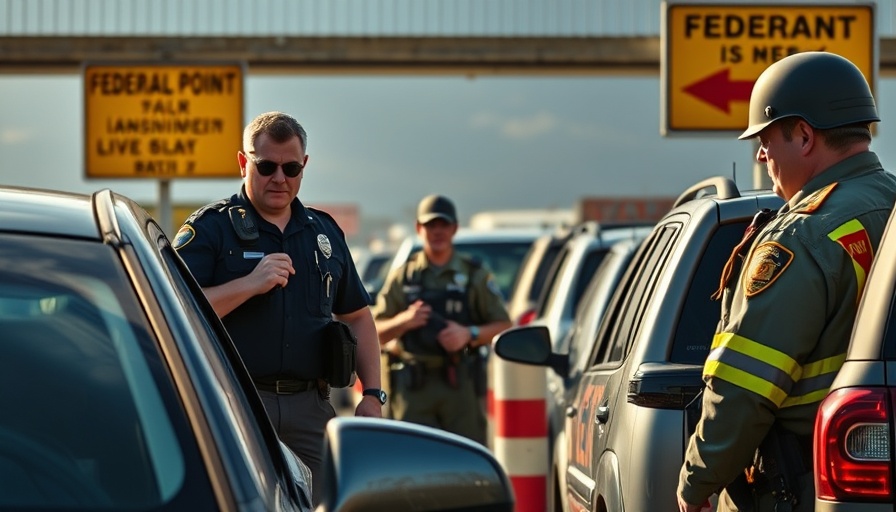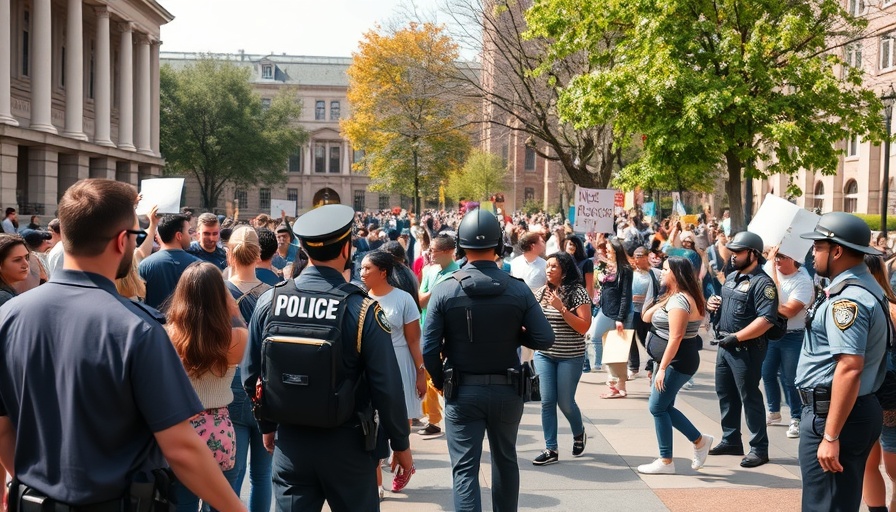
Understanding Fourth Amendment Rights
The Fourth Amendment of the U.S. Constitution protects citizens from unreasonable searches and seizures. Historical jurisprudence, particularly highlighted by the Supreme Court's 2000 ruling, states that police checkpoints or roadblocks can only be legally enforced when aimed at a defined road safety issue. This precedent emerges as a critical context for evaluating the legality of the new federal checkpoints being implemented in Washington, D.C.
A Closer Look at the Implications of Checkpoints
The recent establishment of federal checkpoints in D.C. raises significant concerns regarding civil liberties and public safety. Critics argue that these checkpoints, which do not seem to be explicitly tied to public safety initiatives, might infringe on individual constitutional rights. The lack of transparency around their purpose further intensifies public distrust towards law enforcement agencies. To ensure the protection of constitutional rights, it is essential for police departments and policymakers to weigh the implications of these roadblocks, especially as they relate to community relations.
Public Reaction and Community Trust
Community engagement plays a vital role in fostering trust between law enforcement agencies and the public. The implementation of these new checkpoints has sparked considerable opposition among D.C. residents, who view them as an encroachment on personal freedoms. This discord underscores the importance of procedural justice, emphasizing that police actions should resonate with community values and not merely reflect an administrative decision. Policymakers must navigate these sentiments effectively—fostering dialogue and transparency could mitigate community fears and bolster trust, which are paramount for effective policing.
The Need for Proactive Policing Strategies
In light of the ongoing debates surrounding the legality of these checkpoints, there is an urgent need for recruitment innovation and police reform initiatives that prioritize community-oriented strategies. By integrating technological advancements in policing, such as body camera footage and public safety data analysis, law enforcement can enhance accountability and ensure that their operations align with community expectations. These steps not only protect individual rights but also promote the idea that police are allies rather than adversaries in public safety.
Future Considerations for Policy Decision-Making
As the dialogue surrounding the checkpoints continues, it is critical for policymakers to reflect on the broader implications for public safety and police accountability. By adopting crisis intervention strategies and emphasizing officer wellness, law enforcement leaders can address potential community distress while also planning for a sustainable future. Striving for transparency and shared decision-making must remain at the forefront of discussions to ensure the development of policies that genuinely reflect the will of the community.
Conclusion: The Call for Clear Standards
In conclusion, the advent of new federal checkpoints in D.C. signals a need for careful evaluation of law enforcement practices vis-à-vis constitutional rights. To address public concerns effectively, law enforcement agencies and policymakers must commit to fostering transparency, engaging communities, and implementing innovative strategies that prioritize public safety while fully respecting individual rights. As stakeholders in public safety, we must consider: how can we advocate for policies that bridge the gap between law enforcement and community trust? Now is the time for actionable insights and reform strategies that prioritize individual rights and public trust in policing.
 Add Row
Add Row  Add
Add 

 Add Element
Add Element 


Write A Comment